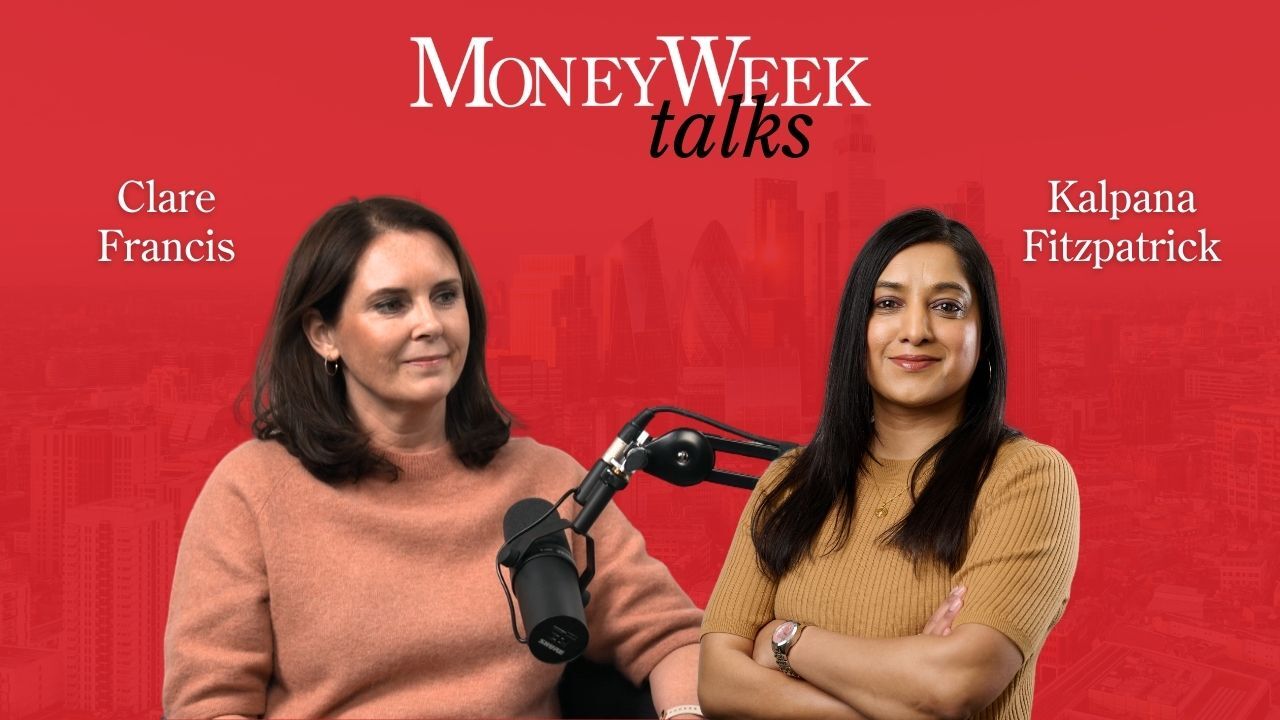Theresa May is no ditherer
Pundits have sprung to the defence of the prime minister who has been criticised for wasting time.

Get the latest financial news, insights and expert analysis from our award-winning MoneyWeek team, to help you understand what really matters when it comes to your finances.
You are now subscribed
Your newsletter sign-up was successful
Want to add more newsletters?

Theresa May's critics were always going to pounce, says Peter Oborne in the Daily Mail. Last week's resignation of Sir Ivan Rogers, Britain's ambassador to the EU, was the cue to do so. Walking out "in a huff", Rogers accused May of "muddled thinking" on Brexit. This week, The Economist, which has a "long and wretched history" of political misjudgements, ran a cover story with the tagline, "Theresa Maybe: Britain's indecisive premier".
I believe that the article, which is peppered with "serious errors" and misrepresentations, has been "planned for some time by powerful interests at the heart of the British Establishment" intent on trying to stop Brexit, says Oborne. The Economist is "beloved" by the pro-EU establishment. Its largest shareholder is Italy's Agnelli family.
But does the central charge, that she is indecisive, hold? After six months, says The Economist, it is "hard to name a single signature policy, and easy to cite U-turns". Some are welcome the plan to put workers on company boards and make firms list foreign employees but others "smack of dithering": Hinkley Point, the Heathrow runway, a possible transitional deal with the EU after Brexit. "The cause of this disarray could be that Mayism itself is muddled."
Try 6 free issues of MoneyWeek today
Get unparalleled financial insight, analysis and expert opinion you can profit from.

Sign up to Money Morning
Don't miss the latest investment and personal finances news, market analysis, plus money-saving tips with our free twice-daily newsletter
Don't miss the latest investment and personal finances news, market analysis, plus money-saving tips with our free twice-daily newsletter
She has promised to make Britain the "strongest global advocate for free markets", says The Economist, but she also talks of reviving a "proper industrial strategy" and has provided "unspecified support and assurances'" to Nissan to persuade the carmaker to stay in Britain. May could "find her feet"; Margaret Thatcher's first term, after all, was "shambolic" too. But the danger is that she will turn out to be another Gordon Brown, who was similarly "thin-skinned" and whose need to "micromanage" paralysed his government.
May's "Delphic manner" can be "infuriating", writes Matthew D'Ancona in The Observer, but she has always been "cautious" and "unflashy". As puzzling as constancy is in a culture "addicted to change", this is to her credit. It is this "spirit of impatience" which underlies many of the recent attacks. Yes, she has made mistakes, but the idea that she "presides over a policy vacuum is nonsense". There have been green papers on school reform, corporate governance and work, health and disability.
Others, on industrial strategy, prison reform, housing and social justice, are in the pipeline. "Almost unnoticed, she is seeking to overturn her party's instinctive distaste for the state". Far from being "at war" with the "mandarinate", May's taste for structured, "patient, evidence-based policymaking" is tailor-made for the "punctilious minds of Whitehall".
Forget the image of May as an "uncommunicative vacillator", agrees Janan Ganesh in the Financial Times. It's "an emotional crutch for people who cannot believe that she means what she says". Listen to her speech to the Conservative party conference; read earlier interviews; and examine her work as home secretary. Her desire to control immigration and resentment of the jurisdiction of the European Court of Justice are clearly evident.
These imperatives "do not imply so much as demand withdrawal from the single market", continues Ganesh. Beyond the issues surrounding Brexit, one can discern her desire to restore Britain to the slower, familiar nation of her youth, even at the expense of "economic dynamism". This version of conservatism isn't for everyone, but "reading it as indecision is a transparent coping mechanism for the liberal-minded". The Economist's cover story was headlined Theresa Maybe. "Theresa Maybe? If only."
Get the latest financial news, insights and expert analysis from our award-winning MoneyWeek team, to help you understand what really matters when it comes to your finances.

Emily has worked as a journalist for more than thirty years and was formerly Assistant Editor of MoneyWeek, which she helped launch in 2000. Prior to this, she was Deputy Features Editor of The Times and a Commissioning Editor for The Independent on Sunday and The Daily Telegraph. She has written for most of the national newspapers including The Times, the Daily and Sunday Telegraph, The Evening Standard and The Daily Mail, She interviewed celebrities weekly for The Sunday Telegraph and wrote a regular column for The Evening Standard. As Political Editor of MoneyWeek, Emily has covered subjects from Brexit to the Gaza war.
Aside from her writing, Emily trained as Nutritional Therapist following her son's diagnosis with Type 1 diabetes in 2011 and now works as a practitioner for Nature Doc, offering one-to-one consultations and running workshops in Oxfordshire.
-
 Are money problems driving the mental health crisis? MoneyWeek Talks
Are money problems driving the mental health crisis? MoneyWeek TalksPodcast Clare Francis, savings and investments director at Barclays, speaks about money and mental health, why you should start investing, and how to build long-term financial resilience.
-
 Pensioners ‘running down larger pots’ to avoid inheritance tax as rule change looms
Pensioners ‘running down larger pots’ to avoid inheritance tax as rule change loomsChanges to inheritance tax (IHT) rules for unused pension pots from April 2027 could trigger an ‘exodus of large defined contribution pension pots’, as retirees spend their savings rather than leave their loved ones with an IHT bill.